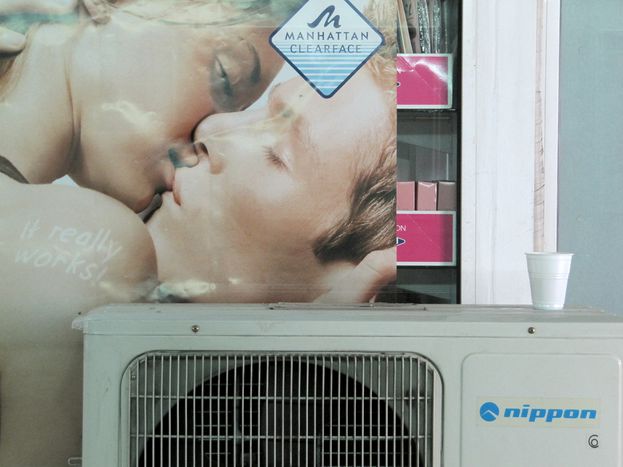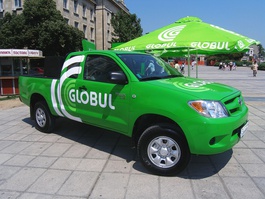
Kinda green: five myths about sustainable development in Bulgaria
Published on
Ah, the Bulgarians. They're relatively apathetic. Most companies are interested in either doing only the legally required minimum for the environment or in using their ‘green’ activities as marketing tools. But counterintuitive though it may seem, the financial crisis actually promotes sustainability
Myth 1: 'Bulgaria is not doing anything to be green'
Not true. On 10 December Ivelina Vasileva, the Bulgarian environment deputy minister, participated in the twelfth meeting of the International Commission for the Protection of the Danube in Vienna, to help protect the river and the Black Sea ecosystem. According to a recent Deutsche Bank report, Bulgaria is expected to significantly overachieve its Kyoto target of 8% below base 1988 emissions level for the period 2008-2012, potentially reaching 35% below base year level by 2010. Already in 2002, Bulgaria’s government created a new energy strategy, further strengthened by a 2007 bill promising to increase the share of energy produced from renewable sources. Sounds great? Curb your enthusiasm, because 1988 was still in the dark communist era times, with its environmental neglect and high level industrial pollution. Besides, even today most of Bulgaria’s energy is produced using lignite.
Myth 2: There are no environmentally sustainable companies in Bulgaria
'Environmentally sustainable’ means zero environmental impact. Yet even the staunchest advocates realise that this is quite hard to achieve. ‘Until we reorient our economy to reflect biological metabolism, to be ‘cradle to cradle’ from ‘cradle to grave’, not much else can be effective,' says Georgi Stefanov, 32, of the WWF (world wide fund for nature) NGO. 'For every truck of laptops we produce eighteen trucks of waste!’ There are scarce international examples of truly environmentally sustainable companies, apart from Interface, a global carpet company annually inching closer to their goal of zero emissions.
 Bulgarian businesses have their own ways to define ‘green’. For mining and industrials, green equals legally compliant: ‘It’s a cost game. They don’t want to be stuck with costly overpolluting fines or expensive legal battles,’ says Boyan Rashev, 32, managing partner at Denkstatt, a sustainability consultancy. For the large service players, green equals profit. Creative marketing techniques inflate their environmental accomplishments to gain a competitive edge with green-loving customers. Apart from just having a green logo, Telecom giant Globul also has an ambitious and comprehensive campaign: handset recycling, environmental heritage protection - you name it, they do it.
Bulgarian businesses have their own ways to define ‘green’. For mining and industrials, green equals legally compliant: ‘It’s a cost game. They don’t want to be stuck with costly overpolluting fines or expensive legal battles,’ says Boyan Rashev, 32, managing partner at Denkstatt, a sustainability consultancy. For the large service players, green equals profit. Creative marketing techniques inflate their environmental accomplishments to gain a competitive edge with green-loving customers. Apart from just having a green logo, Telecom giant Globul also has an ambitious and comprehensive campaign: handset recycling, environmental heritage protection - you name it, they do it.
Myth 3: 'Crisis is bad for the future of Bulgarian sustainable policies'
Once, green regulations were just necessary evils. Today, companies are doing anything to cut costs without losing a valuable work force. The easiest way to do it now in Bulgaria is to go green – sustainable policies reinforcing energy and resource use efficiency help them stay in business and protect jobs.
Myth 4: 'Environmental sustainability relies mostly on industrial reform'
‘Europe’s 160 million buildings use 40% energy and produce 40% of emissions’, says Petar Tashev, 27, from Facilities magazine. Greening out the real estate is a very important step; in Europe it's easier to make decisions regarding repairs and improving the energy efficiency of old residential buildings. ‘It will be a major hurdle here because unlike western Europe, where the landlord frequently owns an entire block of flats, Bulgaria has a strong tradition of personal flat ownership,’ says Tashev. For the renovation of buildings and facades, you have to ensure that all one hundred flat-owners agree to make that investment.
By 2018 all newly built buildings in Europe need to be energy efficient
By 2018 all the newly built buildings in Europe need to be energy efficient, in line with a 2002 energy performance of buildings directive. After seven years in political limbo, this was finally re-launched by the European parliament and European commission in November 2009. In Bulgaria, it will certainly mean changing more than the light bulbs. ‘When western companies want to buy an office building, they are looking for ones with central management systems and that are energy efficient,’ says Tashev.
Myth 5: 'Businesses in Bulgaria don't want to be green'
A grain of truth. More policies are needed to guide the transition from fossil fuels to renewable energies. ‘Our companies don’t want to be green. Our government doesn’t use the right mechanisms to make them want to be green,’ says Borislav Sandov, 26, from the green party. Rashev precises that government support should emphasise taxing the polluters. ‘There are ingenious projects in Bulgaria,’ says Rashev, ‘but not many hear about them. One industrial company uses molten copper heat to generate its own electricity which now covers their needs up to 40%. The best way? Encourage companies to go green their own way.’
The question for Bulgaria is how to continue building green momentum. They should learn the lessons from their more economically advanced peers in western Europe whose green policies are much more mature. It takes time and a multi-pronged approach suited to the specific locale. ‘With a web of very effective NGOs, you can involve other people to back your ideas and involve them as partners,’ says Stefanov. These bring the issues to the national stage, especially in Bulgaria, where no debates garner public interest without significant economic interests backing them.
(Photo: Globul car ©Nedko/ Flickr/ http://nednet.us/)



